Making Sense Of The Madness Of Mr. Osomatsu With Localization Manager David Casipit
Anime’s dubbing industry has grown increasingly ambitious over the past few decades and there are now a wide variety of series that receive localization rather than purely the biggest shonen and magical girl titles. That being said, there are still some anime programs that don’t receive English dubs for a number of reasons, but occasionally it’s because they’re just too immersed in Japanese culture that an English adaptation can almost seem counterproductive. Mr. Osomatsu is such an anime series. Its premise is extremely simple and it’s an absurdist comedy series that’s centered around a group of underachieving sextuplets. However, Mr. Osomatsu is an aggressive gag series where a lot of its humor is dependent upon past Japanese cultural touchstones.
It’s for this reason that it’s extremely exciting not only that Mr. Osomatsu has received an English dub, but that it’s of such a remarkable quality. Its dub is able to articulate the madness of the original, but with a level of passion that helps a lot of the humor and dialogue evolve through their localization changes. David Casipit is VIZ’s localization manager and he’s responsible for the dubs of some of their biggest programs, like One-Punch Man. Mr. Osomatsu highlights some of Casipit’s best work and here he breaks down some of the biggest hurdles and changes that he faced while bringing the anime’s dub to life and if more dubbed Mr. Osomatsu is on the way.

Daniel Kurland: First of all, can you explain what a localization manager does and what’s expected of you when producing an anime dub?
David Casipit: I’m sure there are as many job descriptions as there are jobs, but at VIZ it means I supervise the anime localization team. Basically, I support my group of producers so that they can focus on their shows. That means I negotiate with vendors to set up and kick-off the different aspects of the projects, communicate with various departments at VIZ, assign my staff work and offer them guidance and advice where needed, and take care of all the human affairs that crop up for my team.
However, I wear a few hats other than being a localization manager. One is being the localization producer for a few select projects. Mr. Osomatsu was one of those.
Okay, so what does a localization producer do?
Again, it probably varies a lot throughout the industry, but generally the producer is the focal point for asset handoffs and communication, like a project manager. At VIZ the localization producer also gets involved in the creative side by editing subtitles, casting actors, reviewing and commenting on dub scripts and more. What I tell my producers is that we are the ones who set the bar for quality in the localized materials, though we must always consider financial realities and our deadlines.
DK: Mr. Osomatsu is certainly a very niche show, but with a devoted fanbase. Were you familiar at all with it and its reputation before working on it?
DC: I was not! There’s a lot of anime out there and a lot of manga, and I’m sort of interested in just about everything in the world, so it’s hard to keep up. I began evaluating the show as soon as VIZ considered it as a potential acquisition, and now I don’t know how to quit, even if I wanted to. Please help me.
DK: Mr. Osomatsu isn’t the first anime that I would think of to receive a dub since so much of it is ingrained in Japanese humor and references to the Showa Era. Were there concerns on its accessibility and was it a title that had to be championed by anyone?
DC: Everyone who had seen an episode had those concerns and brought them to my attention! It was always a question without an answer. I think as an acquisition VIZ decided to take a risk on it, but there were definitely a few fans internally at the company who saw its potential and championed it.
These days in entertainment, many of the hardcore fans seem to want localization to adhere as closely as possible to the source material. I’ve seen this a lot in anime, but also in games and other mediums. On the other hand, the Japanese Showa or pop culture references and other cultural humor could be lost even on knowledgeable anime fans. Plus, the comedy is the heart of the show–there’s no action sequences or fan service to grab your focus as a viewer. If the jokes don’t hit, you tune out. So the question became one of balance–I wanted as few people as possible to become confused and lose immersion when watching.
Also, I have to hand it to the Production Committee. When we were discussing the project with them, I was pretty up front that, with all the humor involved, in order to get it to flow across the ocean I might need to change a whole lot. Their response was, “Go for it!” So with their blessing, I set the project up between the actors, the director, the ADR writers and myself along the lines of “We want to stay true to the original, but if we’re not laughing hard, we need to polish until we are.”
I think this gave us all more creative freedom than we would normally get on an anime localization project, and for that very reason, the project became one pretty dear to us.
DK: Something that I really love about the original series is that so many characters have particular vocal tics, whether it’s Iyami’s “-zansu”, Hatabou’s “-jo”, the iconic “Sheh!”, or even Karamatsu’s tendency to speak in English. How were these details approached and considered?
DC: Great question, and it’s one that required some thought as the localization producer. Iyami’s a great example. I felt that the “-zansu” endings in the JP would be hard to pull off in English–present company excepted, Western audiences don’t have the same love affair with sentence-ending catchphrases that Japan does. So I nixxed the “-zansu,” and Hatabou’s “-joo’s.” I know that puts me on a lot of people’s hit list, but it’s where I came down, and it gave us more lip flaps to work in better jokes!
On the other hand, there’s no way to get rid of Iyami’s “Sheh!!!” A lot of scenes and lines are just about the sheh’s, so I couldn’t have removed it, nor did I want to. It’s the balance again. “Zansu” really didn’t add to Iyami’s character, but so much emotion was behind each “sheh” that we had to keep it.
Additionally, there was Iyami’s use of “Me” in the Japanese, which he uses (in bad grammatical form) in place of “I.” I wanted to keep a vestige of it, so I connected his alleged Francophile tendencies and had the writers use “moi” where it worked. I think it opens a door on his character (he’s so often a poseur and insufferable) without making up some new dimension that wasn’t in the original Japanese.
As for Kara’s English… well, there are certain casualties in every battle, certain sacrifices in every localization. Does his use of funky, funky English make him more of a puffed up douchebag in the JP? Yes, yes it does. But all I could think to do in the English is to have Ray Chase, who plays dub Karamatsu, pour on the painful smarminess in his performances. Curse my metal body, I wasn’t smart enough! I’m so sorry for failing you, Karamatsu girls and Karamatsu boys!
DK: What I really love about this dub is that you capture the energy of the original, but you also establish your own voice that manages to amplify the original’s comedy. There are some fantastic additions in the dub, like the “vore” reference. What was the rationale behind these localizations?
DC: Thank you so, so much for your kind words–I really can’t think of a higher compliment for a localization producer. The process was started by asking the writers to provide any ALTs they wanted, then I’d choose the main line for the script or ask for a punch up, but in the end we’d keep all of them and the director and actors would make the call as to which to try and which was the funniest delivery, and that would wind up in the mix.
When reviewing the scripts before recording, I made plenty of comments about how the original characters feel in the Japanese, or the sentiment a scene might have been going for. This was all to help us not stray too far, but also to provide a firmer structure for the writers to build on using their creativity.
But once we established the right background and characterization, the process boiled down to different people egging each other on to go one step further and make ourselves laugh our asses off. I’m not sure there was much more rationale to it than that!
DK: It almost feels like the dub gets even more aggressive with the material rather than toning it down. Was there a conscious effort to maintain an adult nature with the comedy?
DC: Yes and no. I definitely wanted to give everyone creative license, and adult humor was fair game. But I also wanted to be the one to reign it in or focus it in the right direction. For example, at first the ADR writers went a little hog wild with the ability to cuss everywhere, but to me that wasn’t enough. The soul of the source material, to me anyway, is more in the characters being a bunch of (loveable) creeps, not them saying outrageous things. At least, not all the time!
DK: Is there a particular localization change that you’re especially proud of or the one that was the most challenging?
DC: I’m so proud of the whole project and how it came together. The ensemble cast (Cherami Leigh’s Hatabou voice blew me away!), the voice direction, the scripts, even the Closed Captions crack me up. But if there’s one thing that I’m extra proud of, it’s the conversation between the subtitle translators in one of the Blu-Ray extras that is simply impossible to localize. “Translating” those subs was super fun once the idea for the right approach hit me.
As for most challenging… I think it was the casting. Six brothers with the same face, and often on-screen together in every combination. We had to think about who would perform the best for each character, while also not casting voices too similar to each other. The worst was Jyushimatsu. First off, a tough role to act. Second, you’re following the incredible performance of Daisuke Ono, whose Jyushimatsu was so unique. I had no idea who could do that, and we went through several rounds of auditions from some great US actors. I have to hand it to Jamie Simone at Studiopolis, who suggested we try Michael Sinterniklaas. Michael’s voice is very different to Mr. Ono’s, but what sealed the deal for me was how he immediately understood the nature of the character. His performance is like a goofball, super-friendly labrador retriever who got hit by a car one too many times, which totally fits Jyushimatsu. Or is that just me?
DK: VIZ acquired the first two seasons of Mr. Osomatsu. Have you begun any of the localization work on season two yet and is a dub of the anime’s movie a possibility at all?
DC: All I can say is that in Season 2, we had the actors dub some of the in-episode songs and they are glorious.
DK: A few of VIZ’s dubs have ended up on Adult Swim’s Toonami programming block and Mr. Osomatsu is a title that I truly think would thrive in that environment. Do you know if there have been any efforts to get the dub streaming anywhere?
DC: VIZ is always looking to partner up with a variety of streaming platforms for our content where it makes sense, but that’s not my area of expertise. For me, the show is so good that I just want as many people to watch and enjoy it as possible, so I’d love to stream its dub somewhere or get it on TV and make it accessible for everyone.
DK: Lastly, for those people that don’t typically check out anime dubs, why should they make an exception for Mr. Osomatsu?
DC: Well first, the subs were translated by a terrific translator, and we liberally stole everything we wanted from their work and kept it in the dubs. I’m sorry I don’t know their name, but a big shout out to them!
The dubs are the result of a lot of fun, creative people having fun and building a layer of polish on the original. Plus, with comedy, there’s just something that’s there when hearing the emotions, delivery and timing in your own language that isn’t easy to pick up with subs.
And finally, I’ve seen a lot of the show’s fans, who presumably watched only the subs for years, say online that the dub’s humor gave them a way to re-enjoy (is that a word?) the show. The changes we made seem to have hit just the right note–we didn’t go off and completely do our own thing, but we did punch it up with our own humor enough to make it feel fresh again.
The dub of ‘Mr. Osomatsu’s’ first season is currently available on Blu-Ray and to purchase on VOD
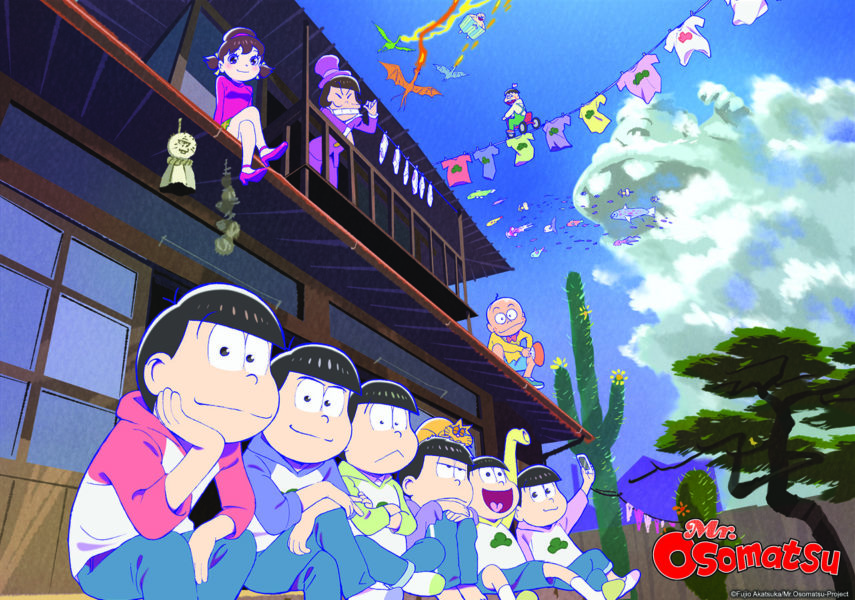


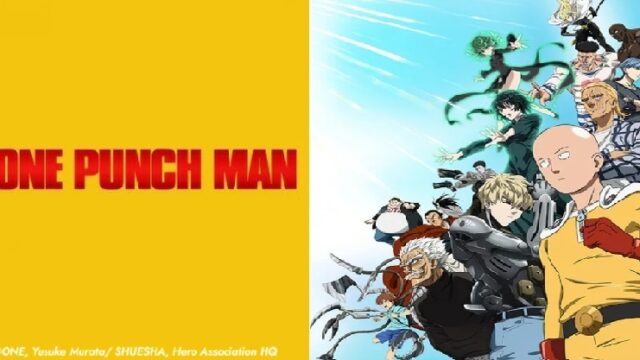
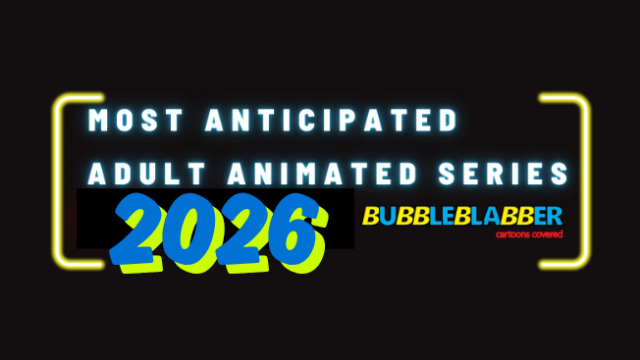
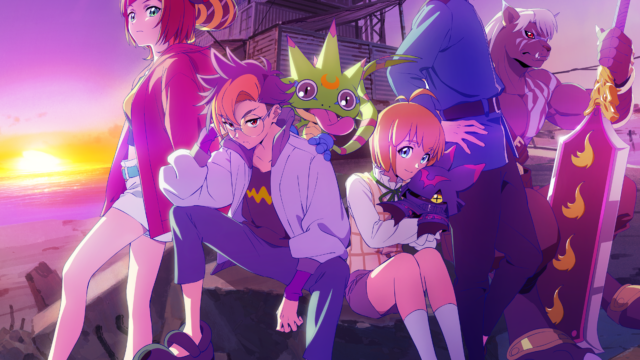
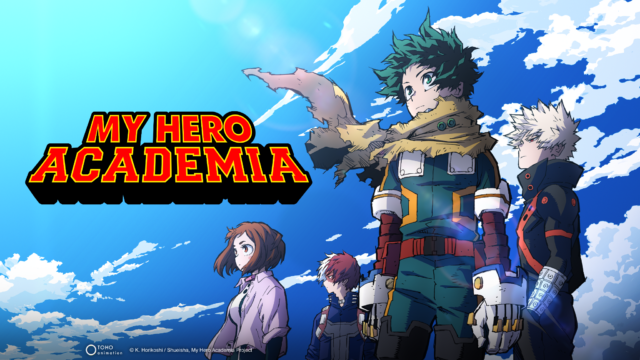








"There are also other characters that come and go (also owned by the Warner Bros. Discovery conglomerate media company)."
Huh. Is that just referring to other characters from the show itself, or is this implying that the new season is going to have cameos from other WBD IPs